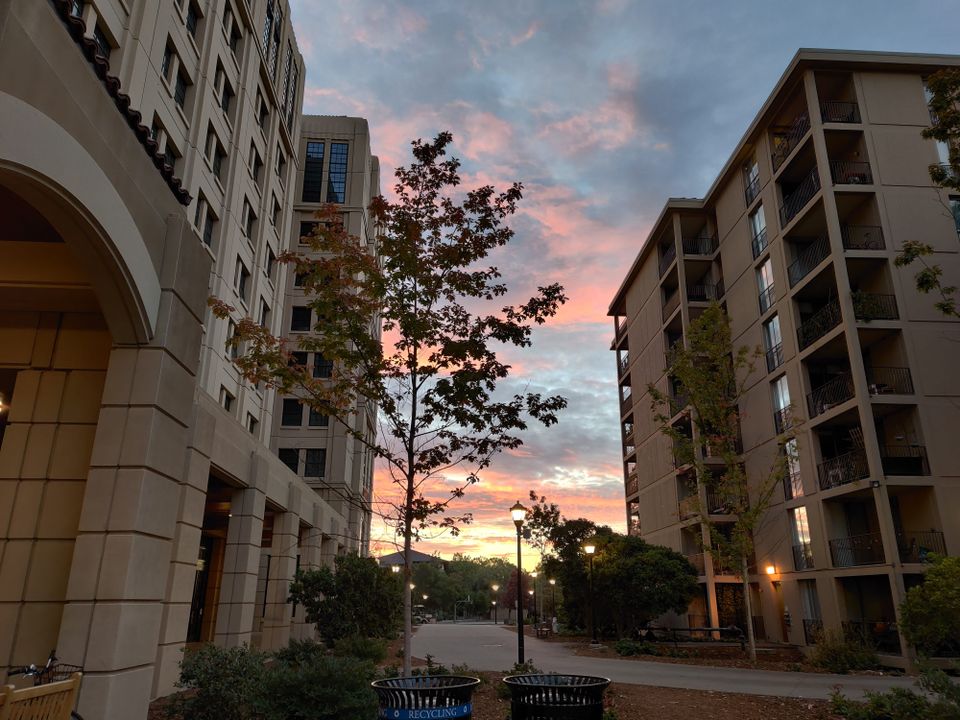Thinking in Systems 🛰

Hi friends,
Four weeks into the quarter, and I feel like I'm slowly getting a grip. This week had a bit of everything from big homework assignments to event planning and execution to meeting new people. One of the most pressing thoughts on my mind is the support provided to graduate students of color. When I watched In the Heights this weekend, one of the main characters spoke about her struggles attending Stanford University. While it was fictional, her struggles were definitely based in truth. Being in-person has allowed me to experience the benefits of connecting with classmates and provided the opportunity for us to share our struggles in a way that wasn't possible during virtual learning. Graduate school is not easy, and when you pile on the additional effort that comes from overcoming imposter syndrome so you can thrive in your work, the hurdles grow another few inches. This week, I helped host an event for all black graduate students, and it was incredible to connect and form these relationships. Through this, I reinforced the importance of community in a place as challenging as Stanford.
Book Talk📚
This week, I continued Thinking in Systems by Donella Meadows and started Educated by Tara Westover. With the former, it was fantastic to develop this framework describing just about every phenomenon we experience, whether built systems like transportation or the economy to social systems like relationships and education. I think the idea I've latched onto the most is about delays. Delays are inevitable in any system we experience. From perception to response and delivery delays, delays are unavoidable in any system we encounter. As frustrating as they are, they can be necessary sometimes, especially since systems are so complex. Take climate change, for instance — if a bill goes into effect banning internal combustion vehicles today, there's no way people can adequately respond because most people have those vehicles. We need to incorporate some time for people to buy electric vehicles; those systems (like charging stations) need to be developed so that they're reliable. The grid we draw energy from needs to be cleaner, or else we risk shifting emissions upstream. We need to think about the interconnected nature of systems and how we can model them accurately while incorporating delays so that we can make the most informed decisions we can.
With Educated, I had to keep checking that this book was not fiction! Tara Westover's story shocks me with each passing chapter. One of my biggest takeaways so far is to give people the chance to tell their stories because we don't know what people have been through and how their experiences have shaped them. I know this is vague because you should read it if you haven't already!
Intentional Content Consumption📰
Article — Used Car Exports Threaten Climate Goals
- As the push for electric vehicles continues, it's essential to recognize that during this response delay, we'll have to get rid of gasoline vehicles somehow. Unbeknownst to me, there's an entire global market for shipping cars from the US to poorer countries worldwide.
- I recently had a conversation with Julianne about if it's better to drive a car until it's useless or if you should get rid of it for a better, more fuel-efficient vehicle — deciding that driving a bad car is terrible for the environment!
- If the cars we're driving are bad for the environment than the cleaner ones we're transitioning to, how does relocating where they're used solve any problem? In fact, it might be creating a bigger problem. The article states:
the global trade in secondhand cars could have bleak consequences for climate change, air quality and, by extension, public health.
- It's essential that we actually and properly retire vehicles no longer suitable for us.
- Caveat: We should understand that this is just one lens to this economic and development system. Developing countries are primarily reliant on these vehicles as they continue to push into their developed future. So here's where some discussion of what sustainable urban development looks like in practice. Do developing countries have to go through the same processes developed countries did, or can they learn from past mistakes? What would this look like?
This Week's Video 📹
I did not get to work on my two videos in the queue this week (a day in my life and the Wildfire videos). I'm starting to think about video production as a heavy lift again, and I don't like that. So my simple goals this week will be to 1. upload my day in the life clips into Premier and 2. edit five more minutes of content from the Wildfire video. In a way, this is the system I'm developing to ensure I get to spend time doing the things I enjoy. Baby steps!
Thanks for reading and reflecting this week! If you aren't subscribed to get this in your inbox weekly, you can here!
Best,
Awoe ✌🏾